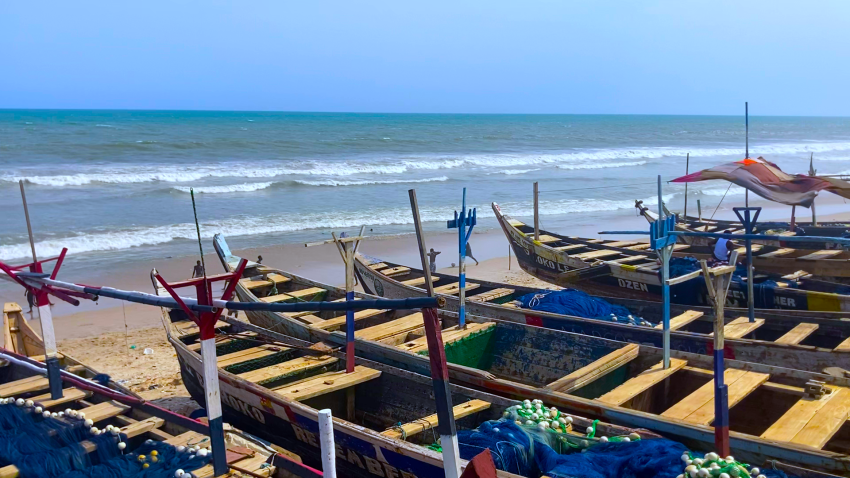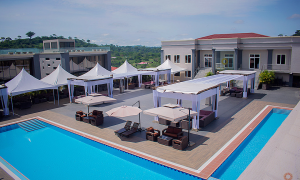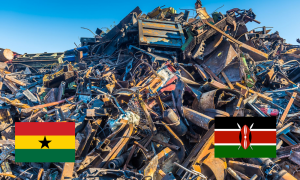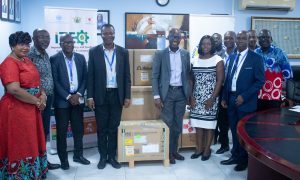By Raymond Rex Awiagah
The Story
Climate change is caused by human activities and threatens life on earth as we know it. With rising greenhouse gas emissions, climate change is occurring at rates much faster than anticipated. Its impacts can be devastating and include extreme and changing weather patterns and rising sea levels.
UN Sustainable Goal 13 on Climate Change
Goal 13: Take urgent action to combat climate change and its impacts
Climate Change: The Case of Coastal Life in Ghana
Chorkor is a coastal community in the Ghana’s capital Accra. This community is known for its rich fishing culture and generations of hardworking fisher folk.
The way of life in this community has always followed the rhythm of the sea. But now, that rhythm is changing. And so is everything tied to it.
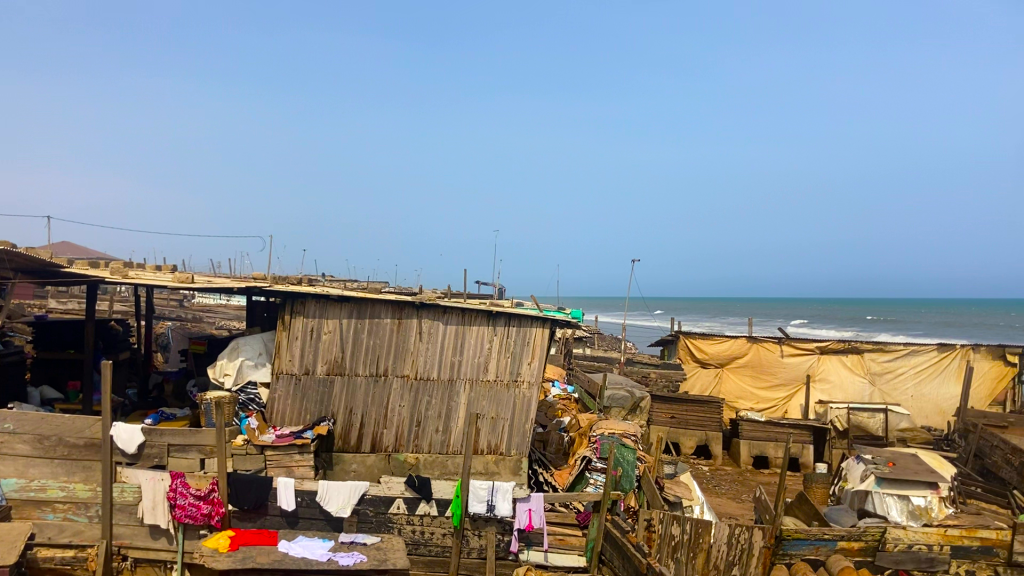
The Visit to understand climate change Impact
Recently, I visited Chorkor not as a content creator, but as a concerned observer of how the climate crisis is reshaping the lives of everyday people. My mission was simple: to find out how climate change is affecting their business.
As I walked along the shoreline, I saw fishermen quietly mending their nets, hoping that the ocean might still offer something the next day. The women fishmongers, who are the unsung heroes of Ghana’s fishing industry, were busy smoking fish.
Point of View from Fishmongers at Chorkor
I spoke with one fishmonger, Naa Korshie, and she tells me that due to the changing levels of the sea, the fish don’t come like before. “we use to get lots of fish at first when I go to the seaside but for some time now when our husbands go for fishing they catch no fish at all”.
The Struggle to get fish
According to her, they had to go to Tema Harbour to buy fish. “we now have to go all the way to Tema to buy fish and one is 20gh. I didn’t make any sale yesterday when I went to the market. Sometimes I have to sell at 20gh the same price I bought it and I have 3 children how much are we going to spend from that and the fishes in the box are mostly 18 in number”.
A Global Crisis with Local Victims
Chorkor’s story is not unique. This is a universal challenges facing many coastal communities around the world.
Statistics From international Organisations
According to the Intergovernmental Panel on Climate Change (IPCC), warming seas and shifting ocean currents are affecting fish migration patterns and breeding cycles, reducing fish stocks and destabilizing local economies.
The Food and Agriculture Organization (FAO) of the United Nations has also warned that climate change poses a major threat to the sustainability of small-scale fisheries, which employ over 90% of the world’s capture fishers and fish workers. Communities like Chorkor are the backbone of these global fisheries, yet they are among the least equipped to adapt to the changes.
The United Nations Development Programme (UNDP) and UN Environment Programme (UNEP) continue to support climate resilience programs across Africa, but the pace of change is slow compared to the speed of destruction.
The United Nations Framework Convention on Climate Change (UNFCCC) has repeatedly called for urgent global action, highlighting that communities in the Global South are facing the worst effects of a crisis they contributed the least to.
Beyond the Numbers — It’s About People
This is not just about rising sea levels or fluctuating temperatures. It’s about people. Mothers who can no longer afford school fees because their fish won’t sell.
Fathers forced to travel farther into dangerous waters for a decent catch. Young people abandoning their heritage because the sea, once a source of pride, now brings only uncertainty.
Climate Change Crisis: Solving the problem
According to the United Nations, to address climate change, we have to vastly raise our ambition at all levels. Much is happening around the world – investments in renewable energy have soared. But more needs to be done.
The world must transform its energy, industry, transport, food, agriculture and forestry systems to ensure that we can limit global temperature rise to well below 2°C, maybe even 1.5°C.
In December 2015, the world took a significant first step by adopting the Paris Agreement, in which all countries committed to take action to address climate change. However, more actions are critically needed in order to meet the targets.
Climate change is eroding more than coastlines. It’s washing away hope, tradition, and the dignity of honest work.
Time to Listen — and Act
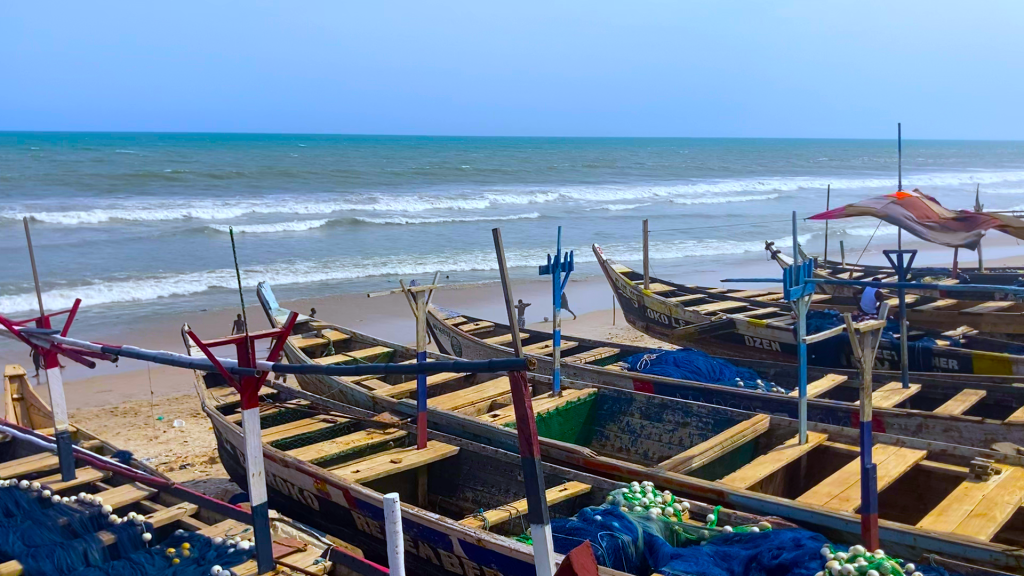
Chorkor’s cry must not be ignored. It is a call to the global community — to policymakers, environmentalists, and leaders of industry — to act with urgency and empathy.
International bodies must scale up funding and technical support for adaptation projects, invest in sustainable fishing practices, and include local voices in global climate conversations.
Are we investing enough to combat climate change?
Meanwhile, according to the UNFCCC, global climate finance flows reached an annual average of $803 billion in 2019–2020, a 12 per cent increase compared to prior years. However, this still falls short of the levels needed to limit warming, and fossil-fuel-related flows exceeded climate financing for adaptation and mitigation in 2020.
Conclusion
Because when we speak of climate change, we must remember that it’s not just about the planet. It’s about people. Real people. Like those in Chorkor.
Let’s listen. Let’s act. Before the tide turns for good.

